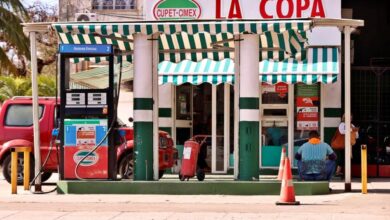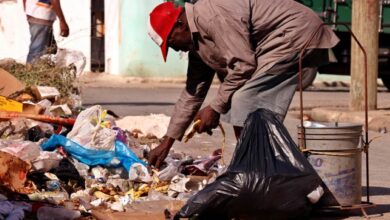How will Latino governments get out of the post-covid economic crisis?
The economic crisis resulting from the pandemic must be attacked by governments with economic reforms .

Since last year, most of the countries in the region have taken measures to mitigate the effects of the COVID-19 pandemic, both socially and economically. Photo: Pexels
LatinAmerican Post | Moises Campos
Listen to this article
Leer en español: ¿Cómo plantean los gobiernos latinos salir de la crisis poscovid?
The governments of Latin American countries are carrying out reforms in all areas of the economy, in order to prevent the rate of growth from declining and thus be able to adequately prepare for sustainable recovery, after the results of the pandemic are mitigated. . An example of this is the tax reform that is being prepared in Colombia.
According to the analysis of the Society of the Americas and Council of the Americas (AS / COA), carried out by several authors and published on www.as-coa.org , most of the countries in the region have taken measures since last year, to mitigate the effects of the COVID-19 pandemic, both socially and economically.
Argentina
With a strong contraction of GDP according to ECLAC reports, Argentina has taken the following measures in the economic aspect:
- Extension of a decree until next year, which prohibits companies from firing their workers, regardless of the cause.
- Extension of the measure to freeze the prices of basic consumer products.
- Creation of a single tax of 2%, which is levied on the wealth of fortunes.
Bolivia
Luis Arce, who is the president of this country, has developed an action plan to face the crisis, among which the following stand out: reduction of interest rates on credit cards, tax refunds for low-income Bolivians, and an increase in property taxes. A financial pause was also approved in the payments of loans of less than 10,000 dollars, as well as the flexibility in the payment of those that exceed this figure.
Also read: Does Maduro have oil to buy vaccines?
Brazil
This year began with the government's determination to reverse the deficit that was created in 2020. A renewal of last year's economic package is possible, and the government is also preparing a new emergency cash transfer that millions of Brazilians will benefit from.
Chile
The government announced a series of financial aid aimed at small businesses, such as the suspension of stamp duty, taxes on documents related to money loans for six months, and the extension of a line of credit to the public bank to cover emergency loans.
Colombia
Besides the tax reform announced by the country's government, there is also a government plan for post-covid economic reactivation in which 13 strategies have been established, prioritzing the promotion of employment, education and international electronic commerce.
Con reforma tributaria, impuesto de renta para personas naturales comenzaría a partir de ingresos de 2 millones de pesos al mes. Cuéntenos su opinión al respecto en #MañanasBLU https://t.co/kkrE7ErEqr
— BluRadio Colombia (@BluRadioCo) March 19, 2021
Confirma el viceministro de Hacienda en @CaracolRadio que las personas que ganen más de 2.500.000 al mes, deberán PAGAR renta, no sólo declararla. Al menos así estará en el proyecto de ley de financiamiento, o reforma tributaria
— steven arce (@stevenarce) April 5, 2021
Ecuador
Ecuador adopted the measure of creating a universal basic income , with which it is intended that the benefited population can survive the effects caused by the pandemic or any other emergency that may arise.
Panama
This country created a line of credit with the IMF. In addition, a series of measures have been taken to stimulate economic growth.
Most countries in the region have taken measures aimed at stimulating economic growth and mitigating the ravages of the coronavirus on the economy, in a post-pandemic scenario.





